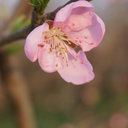Salvia miltiorrhiza compounds protect the liver from acute injury by regulation of p38 and NFκB signaling in Kupffer cells.
Schlüsselwörter
Abstrakt
BACKGROUND
Salvia miltiorrhiza Bunge is a traditional Asian medicine used to treat cerebral and cardiac ischemia. However, the effects of the active compounds of S. miltiorrhiza on liver damage are unclear.
OBJECTIVE
In this study, we tested the effects on acute liver injury of crude S. miltiorrhiza extracts from roots as well as neotanshinone B, dehydromiltirone, tanshinol A, tanshinone I, dihydrotanshinono I, neotanshinone A, cryptanshinono, tanshinone II A, and salvianolie acid B from purified S. miltiorrhiza extracts.
METHODS
Various compounds or ethanol extract of S. miltiorrhiza (50, 100, and 200 mg/kg, p.o.) were administered to rats for five consecutive days. After acute carbon tetrachloride (CCl4)-induced liver injury by treatment of rats with a single dose of CCl4 (0.75 mL/kg, p.o), rat liver function was tested by measuring serum biochemical parameters. Serum cytokine concentrations were assessed by enzyme-linked immunosorbent assay (ELISA). Expression of p38 and NFκB was evaluated by western blot.
RESULTS
All S. miltiorrhiza components showed their effects on liver function from the dose from 50 to 200 mg/kg. At the dose of 200 mg/kg, they reduced serum levels of alkaline phosphatase (ALP) by 34-77%, alanine aminotransferase (ALT) by 30-57%, aspartate aminotransferase (AST) by 43-72%, creatine total bilirubin (BIL-T) by 33-81%, albumin (ALB) by 37-67%, indicating that S. miltiorrhiza extracts protected liver from CCl4-induced damage. Moreover, S. miltiorrhiza extracts at 200 mg/kg reduced the increase in the proinflammatory cytokines tumor necrosis factor-α (TNF-α) by 25-82%, interleukin-1 (IL-1) by 42-74% and interleukin-6 (IL-6) by 67-83%, indicating an effect on alleviating liver inflammation. Furthermore, in vitro, S. miltiorrhiza extracts inhibited p38 and NFκB signaling in Kupffer cells. This effect could be a main mechanism by which S. miltiorrhiza protects against acute liver toxicity.
CONCLUSIONS
Active compounds of S. miltiorrhiza protected the liver from CCl4-induced injury. Protection might have been due to inhibition of p38 and NFκB signaling in Kupffer cells, which subsequently reduced inflammation in the liver.





